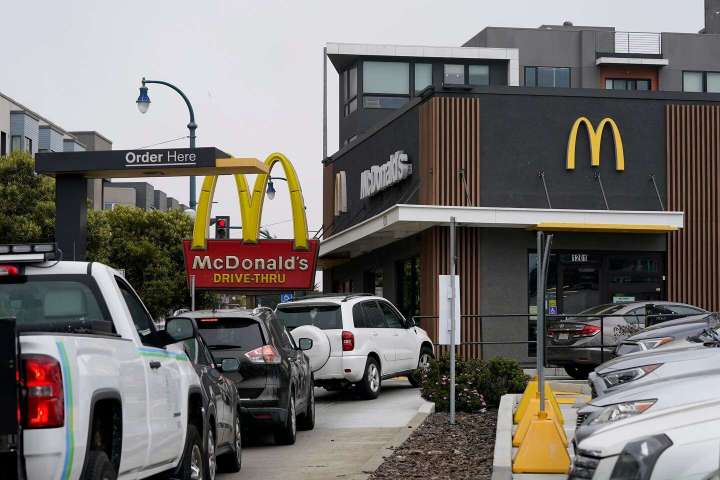California Gov. Gavin Newsom (D) on Monday signed a bill that increases protections for fast-food workers in the state, creating a council to set an industry-wide minimum wage and workplace standards.
Newsom signs law with sweeping protections for California fast-food workers

Newsom said in a Labor Day video message that California, which is the size of the world’s fifth-largest economy, had long had a “formula for success around growth and inclusion.” But the fast-food industry was one in which the state had fallen “a bit short” on improving wages and working conditions, he added.
“For years, the fast food sector has been rife with abuse, low pay, few benefits, and minimal job security,” the bill’s authors wrote. The law provides for the creation of a “Fast Food Council” made up of 10 members to “establish sectorwide minimum standards on wages, working hours, and other working conditions related to the health, safety, and welfare of, and supplying the necessary cost of proper living to, fast food restaurant workers.”
The council will include fast-food employees, worker advocates, franchisees and government representatives.
The legislation caps the 2023 fast-food minimum wage at $22. The state minimum wage is $15 for businesses with 26 employees or more. After Jan. 1, 2024, the sector’s minimum wage will be adjusted for inflation, capped at 3.5 percent annually.
The law also enhances protections for workers against retaliation by their employers.
The Service Employees International Union, which represents 2 million workers nationwide, called the bill’s passage a “watershed moment in the nation’s labor history, giving more than half a million low-wage workers in the fast-food industry a meaningful voice on the job.”
The California law is widely seen as a step toward sectoral bargaining, which involves industry-wide negotiations, rather than talks between individual unions and employers. Sectoral bargaining is difficult under U.S. labor laws, and traditional collective bargaining is often challenging in the fast-food industry, according to the left-leaning Center for American Progress Action Fund.
A 2020 report by the Harvard Law School project Clean Slate for Worker Power noted that franchising models often create environments in which the individual franchise owner negotiates with the union, rather than the union negotiating with the larger corporation. That incentivizes the franchise owner “to pass any wage gains secured by the union onto the customers in the form of higher prices” and, in turn, seek to “prevent unionization at all costs,” the researchers wrote.
The International Franchise Association (IFA), which represents the industry, said the legislation was “a fork in the eye to franchise owners and customers at a time when it hurts most.” The group said it had heard from franchisees that they “do not know how they will be able to make it once this bill goes into effect.”
The bill’s author, Assemblymember Chris Holden (D), said in a statement last week that, “as a former franchisee, I am aware that time is of the essence” to increase wages and protections for fast-food workers. (Holden was a Subway franchise owner in the early 1990s.)
The bill would “lift up small business owners and essential workers swiftly with an inclusive approach to business,” resolving “longstanding issues in the fast-food restaurant sector,” he added.
IFA said the legislation could cause fast-food prices to increase by as much as 20 percent in California, citing an analysis by the University of California at Riverside. That analysis found that a 60 percent increase in worker compensation could cause a 20.4 percent increase in prices.
If the minimum wage for the fast-food industry rose to the maximum $22 per hour under the new legislation, it would be a 46.7 percent increase in compensation from the state’s current $15 minimum wage. Such an increase could cause prices to rise between 13.6 and 17 percent, according to the UC Riverside analysis.






